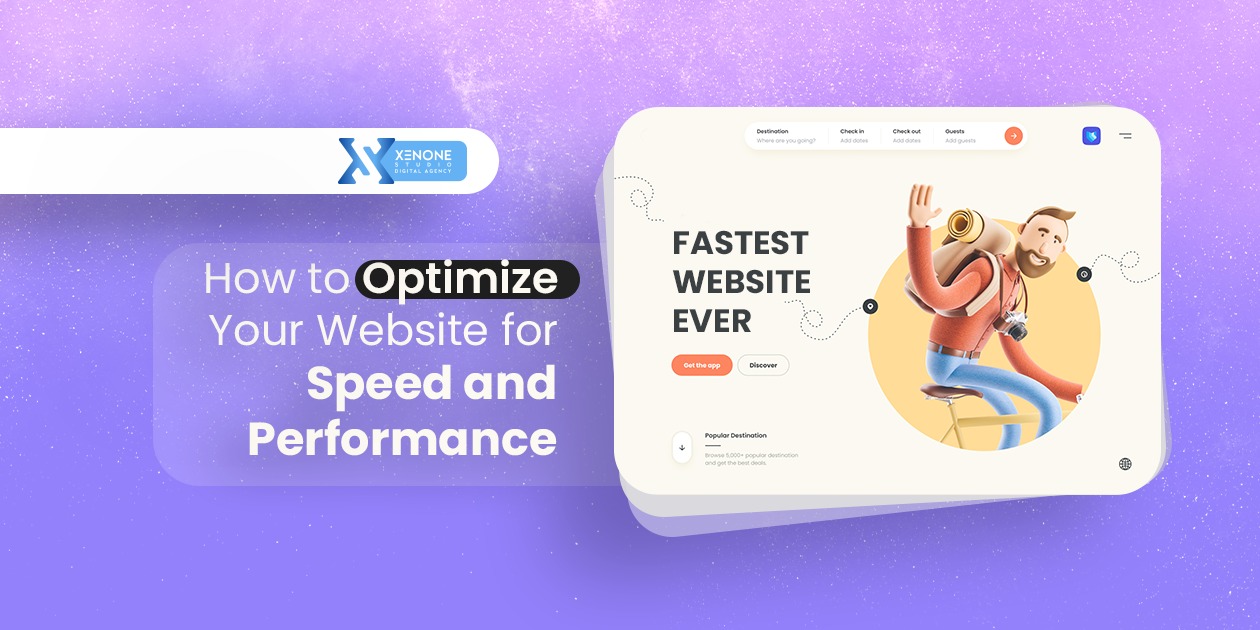SEO for Local Businesses: Strategies to Dominate Local Search
Are you struggling to bring more customers through your doors? Local search optimization may be the solution you’ve been missing. With nearly 46% of all Google searches looking for local information, ensuring your business shows up in local search results isn’t just a strategy anymore—it’s a necessity.
Whether you own a cozy coffee shop, a bustling dental clinic, or a trendy boutique, harnessing the power of local SEO can significantly increase your visibility, boost revenue, and help you outshine the competition.
This step-by-step guide will provide you with actionable strategies to dominate local search and drive more traffic to your business.
1. SEO for Local Businesses: Optimize Your Google Business Profile (GBP)
One of the most effective tools for local SEO is your Google Business Profile (formerly known as Google My Business). This free tool is indispensable for boosting your visibility in local search and appearing in the highly coveted “local 3-pack” at the top of Google search results.
How to Optimize:
- Claim and Verify your profile on Google.
- Fill out all available fields, including:
- Business name
- Address
- Phone number (NAP)
- Website URL
- Hours of operation
- Upload high-quality images of your storefront, products, and team to make your profile visually appealing.
- Craft a compelling business description and incorporate relevant keywords (e.g., “family-friendly Italian restaurant in Denver”).
- Encourage your customers to leave reviews and respond to them promptly.
Pro Tip: Consistently replying to reviews and adding new updates to your profile signals Google that your business is active and trustworthy.
Example:
A bakery in Austin regularly updates its Google Business Profile by posting images of its daily specials and responding to reviews promptly. As a result, it consistently ranks in the top local searches for “best bakery in Austin.”
2. SEO for Local Businesses: Optimize for Local Keywords
To show up in local searches, your website and content must match what potential customers are looking for. Enter local keywords.
How to Identify and Use Local Keywords:
- Use tools like Google Keyword Planner, Ubersuggest, or Ahrefs to research local search terms (e.g., “affordable plumber Brooklyn” or “best yoga studio Miami”).
- Incorporate your target keywords naturally into:
- Page Titles and Meta Descriptions (e.g., “Best Pizza Shop in Chicago | [Your Business Name]”).
- Headings (H1, H2, etc.).
- Body Content on your web pages.
- Image Alt Tags to optimize visuals for search engines.
- URLs (e.g., “[yourwebsite].com/plumber-brooklyn”).
Pro Tip: Focus on “near me” searches (e.g., “plumber near me”) since they’re among the most common local queries.
Example:
A hair salon in San Diego optimizes their website by regularly using keywords like “modern hairstyles in San Diego” and frequently blogs about seasonal style trends, improving their search rankings.
3. SEO for Local Businesses: Create Location-Specific Pages
If your business serves multiple locations, ensure you have a unique page dedicated to each area. This helps you rank better for location-specific searches.
Steps to Create Location Pages:
- Write unique content for each location, such as:
- Customer testimonials from people in the area.
- Photos of your staff serving that community.
- Details about products and services offered specifically in that area.
- Feature the city or neighborhood name prominently in the page title, URL, and throughout the content.
- Embed a Google Map on these pages to help customers find you.
Pro Tip: Avoid “templated” content across location pages. Google penalizes duplicate content and rewards unique, high-value information instead.
Example:
A pest control company creates individual pages like “Pest Control Services in Houston” and “Termite Solutions for Dallas.” Each page highlights unique services, reviews, and maps specific to that area.
4. SEO for Local Businesses: Build Local Citations and Listings
When your business’s NAP (Name, Address, Phone Number) appears consistently across various websites and directories, search engines trust your business more and rank it higher in local results.
How to Add Your Business:
- Submit listings to popular directories such as:
- Yelp
- Bing Places
- YellowPages
- TripAdvisor (for hospitality businesses)
- Ensure NAP consistency across every platform.
- Look for industry-specific directories (e.g., Houzz for contractors, Zocdoc for medical professionals).
Pro Tip: Use tools like Moz Local or BrightLocal to manage your listings and fix inconsistencies.
Example:
A local art gallery ensures its address and phone number are identical across Yelp, Google, and event-listing websites. As a result, they saw an increase in foot traffic and improved their Google rankings.
5. SEO for Local Businesses: Leverage Local Backlinks
Backlinks from local websites and organizations signal trustworthiness to search engines, pushing your site higher in rankings.
Strategies for Building Local Backlinks:
- Collaborate with local bloggers or influencers to post reviews of your services.
- Partner with nearby businesses for cross-promotions and share each other’s links.
- Sponsor local events, charities, or sports teams. Many will include a link to your website on their event pages.
- Reach out to local news outlets or community websites for feature story opportunities.
Pro Tip: Focus on quality over quantity. A few authoritative local backlinks are far more valuable than a dozen irrelevant ones.
Example:
A fitness studio partners with a local sports nutrition shop, and both link to each other’s websites. Their collaboration not only improves SEO but attracts new customers to both businesses.
SEO for Local Businesses: Bonus Tips to Take Your Local SEO Further
- Mobile Optimization:
With most local searches happening on mobile, ensure your site is responsive, fast, and user-friendly.
- Schema Markup:
Add Local Business Schema to your website so search engines can better understand your location and services.
- Social Media Activity:
Stay active on platforms like Facebook or Instagram to increase local brand awareness and engagement.
SEO for Local Businesses: Final Words
Local SEO isn’t just an optional strategy anymore, it’s a critical component for any business hoping to grow and succeed in today’s competitive landscape. By optimizing your Google Business Profile, targeting local keywords, building location pages, strengthening your citations, and leveraging local backlinks, you can ensure that your business stands out in search results and attracts customers right to your door.
Don’t wait to act. Start applying these strategies today, and watch as your local visibility translates into more revenue and stronger relationships with your community. If you’re ready to take your efforts to the next level, explore expert SEO tools or services that can help guide your strategy!
SEO for Local Businesses: Q& A
Q1. What is local SEO, and why is it important?
Local SEO is the process of optimizing your online presence to attract more business from local searches on search engines like Google. It’s crucial because nearly 46% of Google searches are looking for local information. If your business ranks high in local search results, it increases visibility, drives traffic to your location, and boosts revenue.
Q2. How do I optimize my Google Business Profile (GBP)?
To optimize your GBP, follow these steps:
- Claim and verify your profile on Google.
- Provide accurate and complete information, including your business name, address, phone number (NAP), website, and hours of operation.
- Add high-quality photos of your storefront, team, and products.
- Write a compelling business description with relevant keywords.
- Regularly update your profile and respond to customer reviews promptly to show engagement and build trust.
Q3. What role do local keywords play in local SEO?
Local keywords are search terms that include location-specific phrases (e.g., “pizza shop in Chicago”). They help match your business to what locals are searching for. Incorporating these keywords into your website’s titles, headings, content, and metadata makes it more likely for your business to appear in search results for those queries.
Q4. Should I create separate pages for each of my store locations?
Yes, if your business operates in multiple areas, creating unique location-specific pages is essential. These pages should include content tailored to each location, such as local customer reviews, photos, and services. Highlight the city or neighborhood in the page title, headings, and content to improve rankings for location-based searches.
Q5. What are local citations, and why are they important?
Local citations are online mentions of your business’s name, address, and phone number on directories like Yelp, Yellow Pages, and TripAdvisor. Consistent citations improve your credibility and help search engines verify your location, which can lead to higher rankings in local search results.
Q6. How can I build local backlinks?
To build local backlinks, try these strategies:
- Partner with local bloggers or influencers to review your services.
- Collaborate with nearby businesses for cross-promotions and mutual linking.
- Sponsor local events or charities and request a link back to your website.
- Reach out to local news sites or community organizations for potential features.
Q7. Do I need to optimize my website for mobile users?
Absolutely. Since most local searches happen on mobile devices, a mobile-friendly website is critical. Make sure your site is fast, responsive, and easy to navigate to provide a seamless user experience.
Q8. What is schema markup, and how does it help local SEO?
Schema markup is a type of code you add to your website to help search engines understand your business’s details, like its location and services. Adding Local Business Schema can improve your chances of appearing in rich search results, such as featured snippets or the local 3-pack.
Q9. How do reviews impact local SEO?
Positive reviews signal trustworthiness and authority to both search engines and potential customers. Encourage satisfied customers to leave reviews and make it a habit to reply, whether the feedback is positive or negative. Active engagement with reviews can help improve your local search rankings.
Q10. Can social media activity improve my local SEO?
Indirectly, yes. Active social media accounts increase your local brand visibility, encourage customer interaction, and drive traffic to your website. While social signals don’t directly influence SEO rankings, they can help build awareness and trust, which contributes to overall success.
Q11. Is investing in local SEO worth it?
Yes, local SEO is critical for connecting with nearby customers and standing out among competitors. Implementing strategies like optimizing your GBP, using local keywords, and building local backlinks ensures your business is visible to people actively searching for services in your area, ultimately driving growth and revenue.







